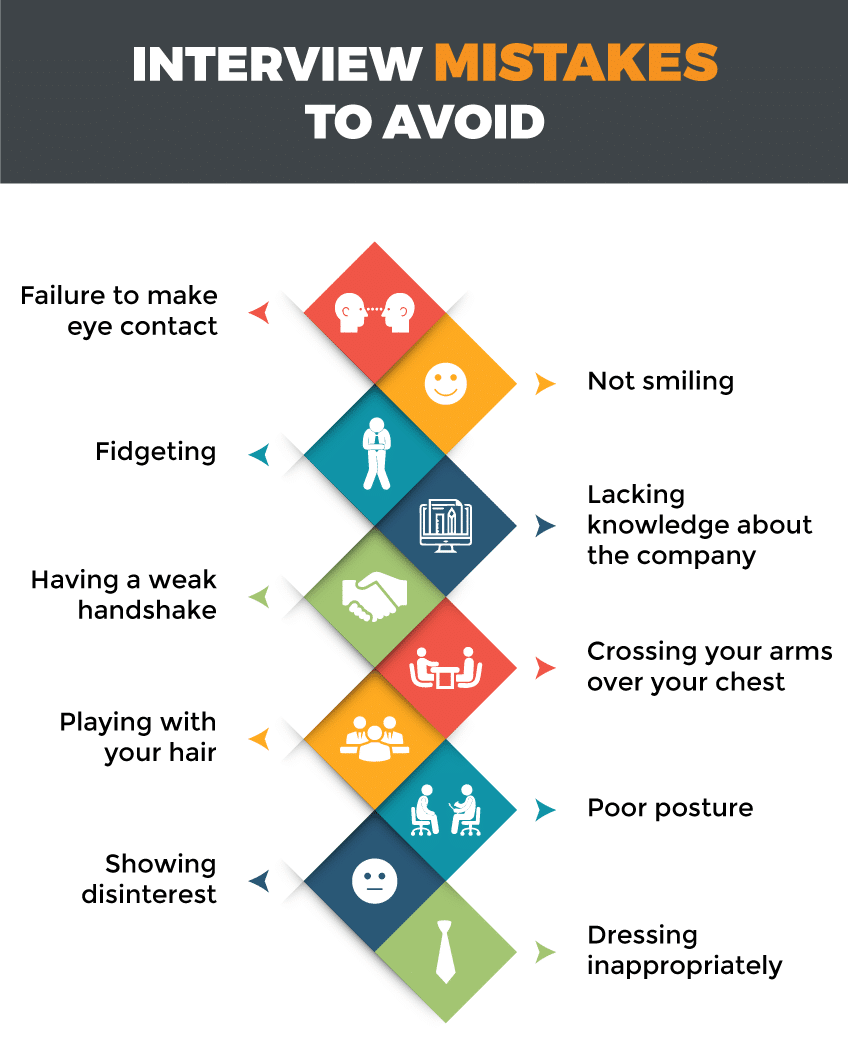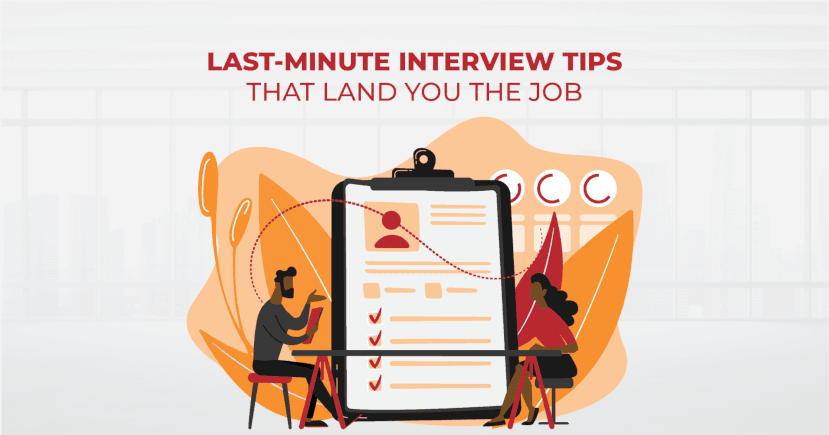With everything happening online, it is easy to get invited to a last-minute interview, with not more than just a couple of hours to prepare. Don’t freak out when this happens. Stay calm and focused, as you would for any other interview. Sometimes your interview will come at a time when you are only scrambling to stay still. Your response will determine the difference between a failed interview and a job offer.
Here are some tips on how to land a job with a last-minute interview:
Table of Contents
1. Read the company’s website
Getting a last-minute interview does not exempt you from knowing what the company is about. If you are interested in working for them, you must show interest in joining the team. Find their website and do a deep industry search. Learn as much as you can about the company and the services they provide. How are your skills going to add value to the company? Do you understand why they need someone like you to fill the position? Be prepared, you still have to stand out from the rest of the applicants.

2. Scroll through their social media profiles
As companies are evolving with the digital world, most of them will always have an online presence. Make sure you take a couple of minutes to find and search through the company’s social media and understand their language. Does it look like a company that has a lot of millennials or is it contemporary? How do they communicate with their audience? Do you feel like you will be a good fit for the company culture? Know the industry language and familiarise yourself with their target audience, this way you are better equipped in case of anything during and after the interview.
3. Research your interviewers
You have received the last-minute interview from your potential employers. Run a quick search on them. Find them on the company’s LinkedIn page. Do you have any shared connections that can give you a quick insight on what to expect? Can you get any information about their work personalities? There is a wealth of information online these days, take advantage, and make yourself unique. After all, the goal is to impress and get the job!

4. Dress the part
While this goes without saying, it is an important reminder for any interview, last-minute or not. Look up the company and find out their dress style. Are they office casual or official? Make sure every effort you make towards the interview, gets you as closer to the company as possible. Did you identify their dress code? Now dress a bit better than that!
5. Understand the job description
Getting invited to an interview means you applied for the role advertised and got shortlisted. Sometimes you can apply for a job or several, and it takes weeks or months to get invited for an interview. When that last-minute interview suddenly appears in your inbox, you can barely remember where you got the job ad and what it entailed. This when you should go over your CV and cover letter again. Have you had any improvements since you applied to the role that can better place you as the best candidate fit for the role? Make sure your CV & cover letter stay as updated as possible.
6. Come up with a few questions of your own
At the end of the interview, the recruiters are likely to ask if you have any questions. Jot down a few questions that you can ask when the interview is complete. Most job seekers are always too nervous to ask any questions, and this can be a negative sign to an employer. When you ask questions, you show interest in the role and company, and chances are, you’ll make a good catch for when they need to settle on someone.

7. Focus on your strengths
A last-minute interview means you have shorter than the average time to prepare. This means that to stand out, you have to show your best skills! This is the time you can blow your own horn and make them know just how good you are at what you do, and what you intend to bring to the table. A lot of people struggle with imposter syndrome, and at a time like this, they can be unsettled and scared. Believe in yourself and you’ll be proud.

8. Follow Up
After the interview, make note of the names of your interviewers for follow up processes. Do not forget to thank them for an opportunity to present yourself, either in person or virtually, as the new normal goes. Make a good first impression. Your interviewers are the first window into the company, so give your best shot. Ask for when you might expect feedback on the interview and when or if that time elapses and you have no response, follow up with them. Most recruiters give a 2-week period to get in contact, wait until that ends to follow up.
A last-minute interview can make anyone nervous. Sometimes, even the interviewers themselves will look up for last-minute interview tips right before you walk in! So it is okay to be nervous, but don’t let it stand between you and your next big job! Be confident and ace that interview! Good Luck!
The Most Dreaded Interview Question and How to Tackle it
An interview, in itself, is a nerve-wracking experience that still gives you butterflies no matter how hard you prepare. The questions asked in an interview don’t make the situation better. These questions are formulated to test your suitability, experience and capacity to perform optimally if given the role. This is why giving canned answers to the common interview questions doesn’t work.
We all know these common interview questions. The ‘Tell me about yourself’ and ‘Where you see yourself in 5 years’ kind and others. BrighterMonday, in its social media accounts, created a poll that sought to find out which question in interviews they dreaded in interviews, and we have a winner: What is your greatest weakness?
Why do Candidates Fear this Question?
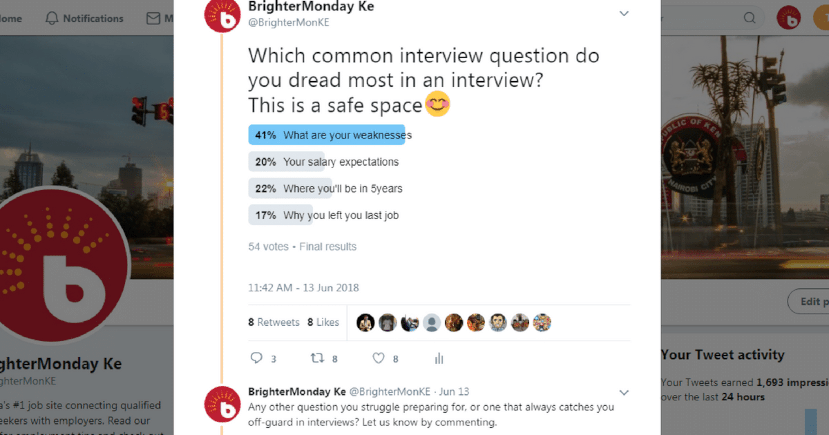
The poll conducted by BrighterMonday showed that 41%of the respondents considered this question scary and ridiculous at the same time.
[bctt tweet=”Why would a panel ask about a weakness yet the candidate is here to show them just how well they fit into the role they cut out? Shouldn’t they concentrate more on why a candidate is right and not why they are wrong for the role?” username=”BrighterMonKe”]
This question is usually the half part of the larger question “Tell me about your strengths and weaknesses.” Strengths are easy to talk about. Isn’t it why they called you for the interview? They saw strengths splattered across your CV and said amongst themselves, “Let’s call this one. She looks like she has something we can explore.” Talking about weaknesses though, that’s a tough one. Telling the panel that you are not a morning person and you’re late every day, or that you miss almost every deadline because you are the queen of procrastination doesn’t sound like a wise way to create a good impression. You will not get that job, that’s for sure. That is why you will not give such answers, even though they define you to a tee.
So Why do Recruiters Still Ask about weaknesses?

You might be wondering why recruiters continue to ask this question in interviews knowing too well no candidate is going to give a real weakness. However, there is a very good reason why the ‘what is your greatest weakness’ has become a cliche in interviews. Th reason lies in the how you answer the question and not necessarily in what you say. How you answer this question is very telling. It shows how you deal with curveballs thrown at you with the intention of catching you off-guard. How you are able to show that you are first of all authentic in realising that you are work in progress and the fact that you are self-aware enough to recognize your shortcomings with the intention of working to improve them.
Common Wrong Interpretations of the Weakness Question
To avoid showing your dark, ugly, unemployable side, you will quickly interpret the question in one of the following ways and give an answer;
An interview Should Only Portray the Good. So, Deny Deny Deny:
Wrong move.
Denial is the worst mistake you could ever make in such a situation. Saying you do not have a weakness doesn’t make any sense at all. No one is perfect, and there is always room for improvement no matter how seasoned you think you are. When you say you have no weakness, you make the interviewer think you are hiding something.
2. I am going to sugarcoat a weakness with a strength!
Sneaky, but still a wrong move.
Recruiters have discovered this trick where candidates give strengths disguised as weaknesses to look good. You must have heard these statements;
- I am such a hard worker I don’t know when to stop.
- I am a perfectionist. All my ducks have to be in a perfect row
- I care too much about the task at hand everything else fades into oblivion
These statements don’t work anymore. Recruiters see right through the unauthentic effort to look good.
3. Oh, another chance for me to unpack my baggage
Uncomfortable for everyone, and a very wrong move
You are not in a shrink’s office. Do not mistake an interview as a chance for you to talk about your personal problems. Telling the panel how a certain interviewer a long time ago shouted at you making you so scared and triggered your stammering isn’t going to get you sympathy. It will only make everyone in the room uncomfortable. Even if one of your weaknesses is clearly visible, how you manage without constantly referring to it will be your ultimate strength. So no, tagging on your panel’s empathy will not get you the job.
Different Ways Recruiters Frame the Weakness Question

1. Tell me about your greatest weakness
This is the most common way of asking the question.
2. What are your strengths and weaknesses?
This little sandwich comes with a positive that starts with a high where you feel great about highlighting your strengths, till you hit the “now on to my weaknesses,” phrase. You then realise you actually don’t know what to say!
3. What are some of your weaknesses?
The interviewer is asking for more than just one weakness. They know you are ready with one well-rehearsed weakness and they decide to push for more. This means that you need to be ready just in case they ask for another weakness or do a follow-up question on the one you give.
4. If you were to change one thing about yourself, what would it be?
This phrasing is asking for what you consider your greatest weakness. The trick here lies in the positive framing of the question, where you will find yourself just talking about your weaknesses unaware because at the back of your mind you are waiting to be asked, “What is your greatest weakness.
5. If I called your previous supervisor today, what would they tell me you need to work on?
This is by far the trickiest framing of the question. You are forced to think about two things at the same time; What did my previous supervisor always reprimand me on? and What will my previous supervisor really say? The interviewer plants the idea of them actually calling your previous supervisor and subconsciously ends up coercing you to be more honest.
6. What do you want to change about yourself this year?
This phrasing also points to your greatest weakness and in a positive way talk about the plans you have for self-improvement.
7. Tell me about the development plans you have set for yourself
This framing probes you for your weaknesses in order of great to small, while at the same time emphasizes on your capacity to be proactive and set goals for self-development.
So how then should you answer the weakness question in interviews?

Now that you understand that the weakness question is more than just a ridiculous cliche, how do you answer it appropriately?
Prepare Prepare Prepare
A sure way of flunking this question so bad is lack of preparation. Most interview questions give you the opportunity to talk about positive things that define you. This is the only question that explores your ‘dark side’. So there’s that fact that you are supposed to say something that doesn’t flatter you, then the other fact that you didn’t even think about it or prepare. That equals to double the butterflies. You do not want that now, do you?
Be authentic
Think of something that defines you as much as possible, and find a way of describing it in your own language. Rehashing and repeating cliche answers puts off the interviewers and whats worse? You might be so nervous you forget your rehearsed answer!
Be careful not to give a weakness that would be considered major in that role
There is a reason why you should research and prepare for every interview. Roles are unique. This is why different skillsets are required for different roles. Different strengths are critical in different roles, so are acceptable weaknesses. You cannot be interviewing for an accounting position then say your greatest weakness is your inability to comprehend numbers! Or you are seated in a customer service interview and you say how you find it hard to interact with people, how they tire you. You definitely won’t get that job. Your weakness should not be critical for the role. It seems like you are being set up to lie, but interviews are meant to showcase WHY YOU ARE RIGHT for that job.
Possible Follow Up Questions to Watch Out For

- But how has this weakness affected you negatively?
This question will be asked if your interviewer thinks you haven’t given a real weakness. Make sure you don’t use cliche answers or this question will follow up.
- Ok, Now give us a real weakness
The interviewer point blank thinks you are lying. They might sigh or roll their eyes, “here we go again same old answers.” This will usually happen if you give cliche weaknesses like, “I am a perfectionist.”
- So what have you done to conquer this weakness?
This will be asked if you have given a half answer; meaning you have given a weakness without following up with an explanation of what you are currently doing to overcome the weakness.
- Tell me about a time this weakness affected you
The interviewer wants to verify that the weakness you spoke about really affected you in your work and that you are telling the truth.
- If we hire you, how can we be sure this weakness will not be a detriment?
This question is asked when your weakness is of concern in relation to carrying out your tasks. The important thing here is to convince the interviewer that your weakness is a thing of the past or that you have made great strides in alleviating its effects.
So there you have it,
The weakness question is not that hard after all, is it? When you understand why it is asked and how you can tackle it, you can go into any interview confident to take the job and the day.
If you have ever been fired before, you know too well how difficult explaining your situation in your next interview. Being asked why you were terminated is one of the most challenging interview questions and could throw you off guard if you are not adequately prepared.
Here is how to answer the question, “Why were you fired?’
Understand What the Interviewer is Really Looking For

Aside from the circumstances surrounding your dismissal, your prospective employer also wants to find out how you cope in the face of adversity. Of course, they would like to confirm that you weren’t fired for gross misconduct like stealing and that you will not also become a liability to them too. However, most importantly, they want to see if you are able to be accountable for your mistake and take responsibility and that it is no longer an issue.
Considerations When Talking About Your Dismissal in an Interview

Practice your response
You need to get comfortable talking about getting fired. Practice talking about it till you are comfortable talking about it without feeling emotional or embarrassed. Go to the interview prepared to explain the situation.
Don’t Lie
Resist the temptation to downplay your firing into a layoff. Chances are, the truth will rear its ugly head sooner or later and you could actually get fired again from your new job. Even if you don’t get fired immediately the relationship will be ruined.
Keep it Brief
Don’t dwell on the discussion going on and on about how the situation and how it ruined your life. This is actually the reason why you should practice what to say as suggested above. Because not only does it help you know what to say, it also helps you get rid of any underlying emotions.
Avoid Using the Word ‘Fired’
Bear in mind that you are in an interview and you are supposed to be selling yourself. While it is a fact that you got fired, you do not need to keep throwing the negativity into the conversation. Instead, use words like ‘Let go’.
Be Strategic in Interviews
Mostly, being let go or getting fired usually has to do with a mismatch in what you have to offer and what a business needs, your way of working or mismanagement of expectations and performance. It could also be squarely on you. You were lazy or not serious with your work, or just a dent in your character.

The best strategy here is to keep your answers honest, short and to the point. At the same time, tailor your responses to fit your interview situation and place you in a positive light.
Below are phrases to start off;
- Being let go was a blessing in disguise for me. I now have an opportunity to explore jobs better suited to my qualifications and skills. My skills are more suited for this industry because of XYZ.
- My role wasn’t working out, so my then boss and I agreed that I should seek a more-suited role and industry, and here I am.
- I was desperate for work and took the first one that came my way. When they let me go it made me realize that I need to choose something I am passionate about. That’s why I am here.
Things To Never Say In An Interview
In any interview, your main goal is to ensure you get across as the right person for the job.It’s a chance for you to convince the hiring panel or manager that you are a great fit. As you are doing your research and preparing for the interview, there are questions that you need to avoid. To help you, here are 10 things not to say.
1.What do you do around here?
Before going for any interview, do your research.You come out across as arrogant when you are unaware of the company does. Most companies have an online presence, check out their website and social platforms and have all the information you might need.
2. I just couldn’t stand my last job.
No matter how bad your last job was, don’t complain about it. It’s not a good look on you, when you keep going about your old boss and the crazy work environment.
3. I never liked my old boss.
Similarly, you shouldn’t speak about your old boss, this a chance for you to have a fresh start, focus on the new opportunity.
4. I’m So Nervous.
Even when you are nervous, don’t say it out loud. Find a way to stay calm, this says a lot about your personality and just how good you are under pressure.
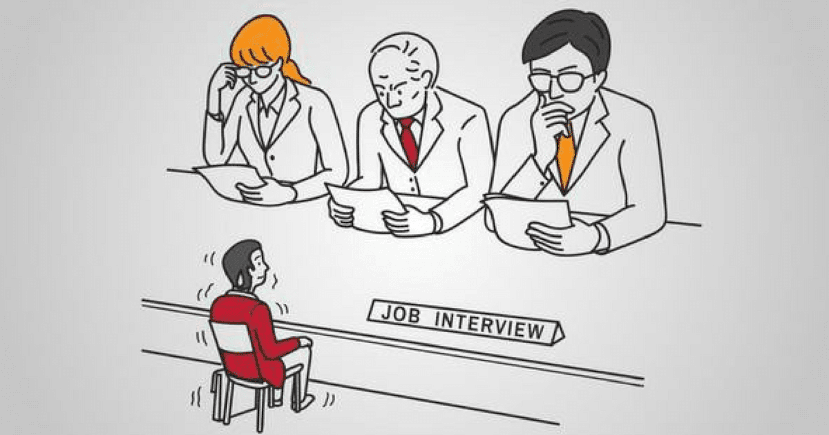
5. I Can Do Pretty Much Anything.
Companies are looking for people who are passionate about what they do. So when you are open to take up any role, that could be a red flag. Be ready to explain what you like about the new position and have as many ideas because they are definitely going to ask you.
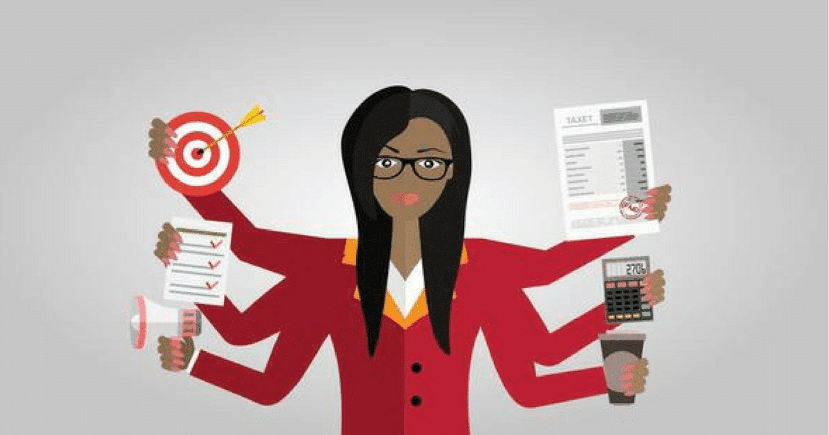
6. I Might Not Have As Much Experience.
This is a mistake many people especially if you are a fresh graduate or looking to change careers. When you apologize for experience you don’t have, you are letting them know that you might not be a great hire. Focus on your strength and show your ability to apply and learn new stuff.
7. But I Have It on My Resume.
Yes, you have it on your resume but when asked, talk about it, don’t ask the hiring manager to refer to your resume. It sounds rude, go ahead and explain yourself in details. This could also show how articulate you are.
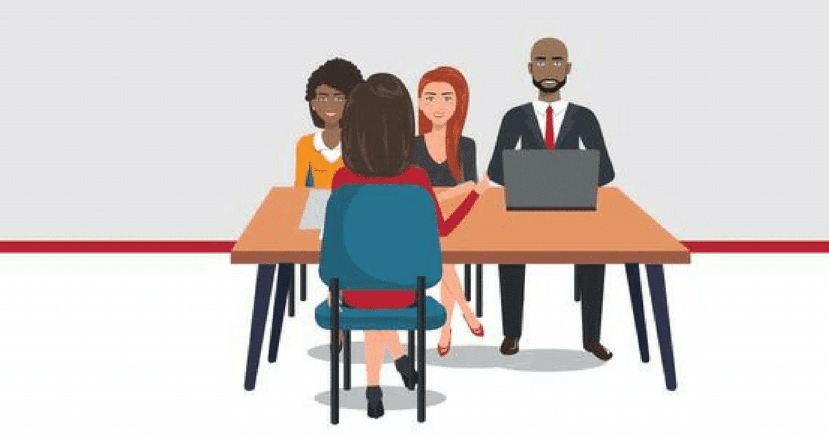
8. I Don’t Know.
Answering questions with ‘I don’t know’ is never a good approach, even after practicing and doing your research, you might still find some questions or topics that you are not very familiar with. ‘That’s a great question, what I would do is..” is a much better approach.
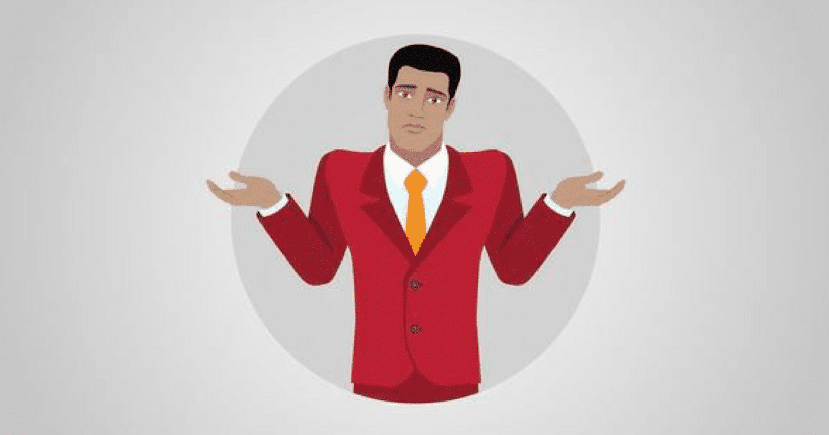
9. So,How Much Vacation Time Do I Get?
This is not a good look especially because you are trying to get the job. The recruiter wants to know how you are going to benefit the company, you asking for leave days already shows that you are not even interested in that job.
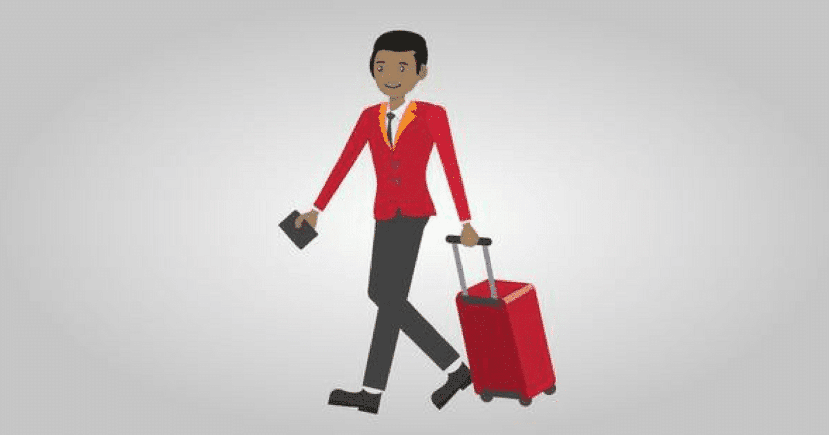
10. How Fast Can I Get To The Next Level?
You asking this question might come of as arrogant or simply rude. Ask about their career paths instead, show that you want to stay with the company for a while and are looking to learn and grow.
Fatal Non-Verbal Interview Mistakes Blocking Your Success
You have done an in-depth research about the company you are to interview with. You have even researched on common interview questions and how to respond to them and you are almost confident that you will ace the interview. But, there is one thing that can hold you back during that interview. Nonverbal language is also language and can be the fine line between you and the job you are interviewing for. Most people only focus on what they want to say and forget that the nonverbal cues can be deal breakers. Remember, first impressions matter so make them count. Here are the non-verbal interview mistakes to avoid.
